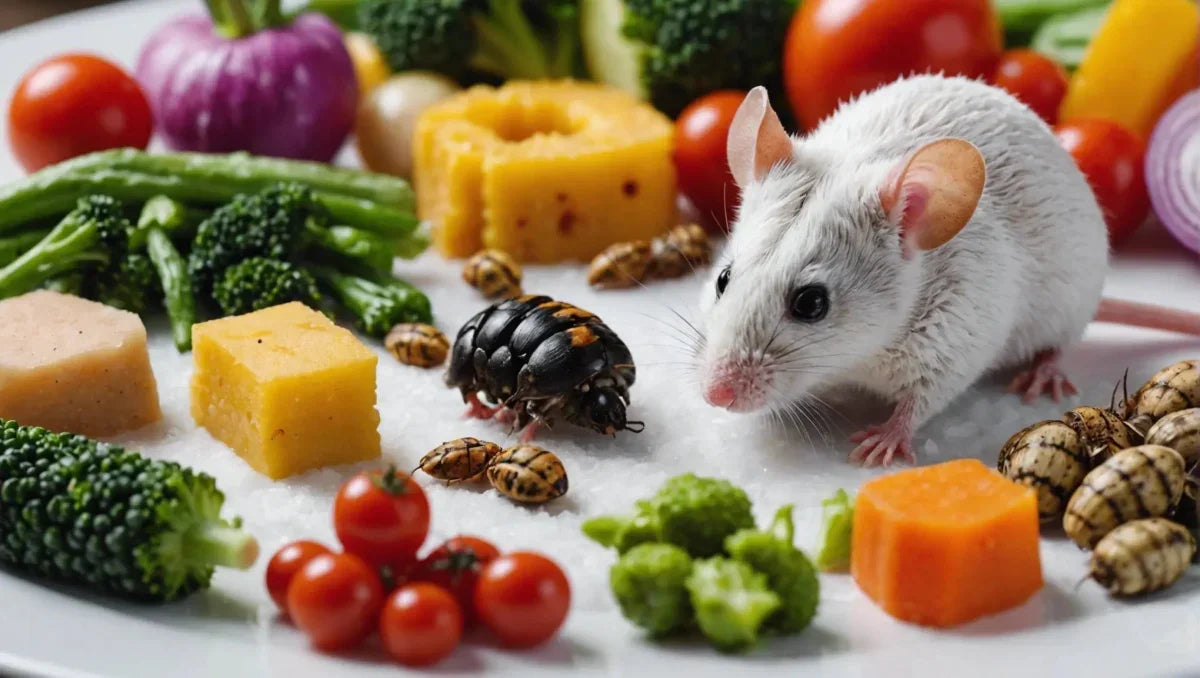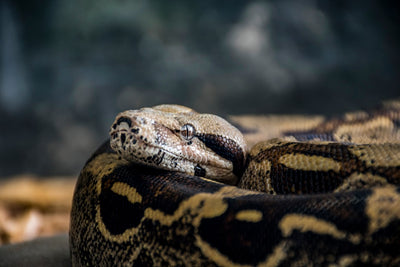
Welcome to the world of reptile care, where convenience meets nutrition with frozen food options. In this guide, we will explore the benefits of using frozen food to feed your scaly companions. From easy storage to nutritional value, frozen food offers a hassle-free solution for providing a well-rounded diet to your reptiles. Say goodbye to live prey maintenance and hello to a more convenient feeding routine. Whether you have snakes, lizards, or turtles, frozen food provides a safe and practical alternative that ensures your pets receive the essential nutrients they need. Join us as we delve into the world of frozen food for reptiles and discover how this feeding option can simplify your pet care regimen while keeping your reptiles healthy and happy.
Types of Frozen Food for Reptiles
Rodents
Rodents are a common type of frozen food for reptiles, such as snakes and large lizards. They come in various sizes, from pinky mice to adult rats, providing options for reptiles of different sizes.
Insects
Insects like crickets, mealworms, and waxworms are another popular choice for frozen reptile food. They are rich in protein and can be a great source of nutrition for insect-eating reptiles.
Fish
Frozen fish, such as small feeder fish like minnows or silversides, can be a good option for aquatic reptiles like turtles. Fish are rich in omega-3 fatty acids and provide essential nutrients.
Fruits and Vegetables
While not as common, some frozen reptile food options include fruits and vegetables. These can be beneficial for herbivorous reptiles like iguanas and tortoises, providing essential vitamins and minerals.
Nutritional Value of Frozen Food Options
Frozen foods for reptiles are often fortified with vitamins and minerals to ensure a balanced diet. They are also convenient and can be stored for longer periods compared to live food. However, it's essential to vary the diet and not rely solely on frozen food to meet all nutritional needs.
When feeding frozen food to reptiles, it's crucial to thaw it properly to avoid any digestive issues. Proper thawing can help retain the nutritional value of the food and make it more palatable for your pet.
In addition to the convenience and nutritional benefits, frozen food can also reduce the risk of parasites that live food may carry. This can help maintain the health of your reptile over the long term.
Benefits of Frozen Food for Reptiles
-
Nutritional Balance : Frozen foods are formulated to provide a balanced diet for reptiles, ensuring they receive essential nutrients.
-
Convenience : Frozen food is easy to store and use, making it a convenient option for reptile owners.
-
Variety : There is a wide variety of frozen food options available, allowing owners to offer diverse meals to their reptiles.
-
Safety : Frozen food reduces the risk of introducing harmful parasites or bacteria to your reptile compared to live food.
Considerations When Feeding Frozen Food
-
Thawing : Always thaw frozen food properly before feeding to ensure your reptile can digest it effectively.
-
Supplementation : While frozen food is nutritionally fortified, consider supplementing your reptile's diet with fresh foods for added variety.
-
Consultation : Consult with a reptile veterinarian or nutrition specialist to create a diet plan tailored to your pet's specific needs.
Incorporating a variety of frozen food options into your reptile's diet can contribute to their overall health and well-being. By understanding the types of frozen food available and their nutritional value, you can make informed choices to provide a balanced diet for your reptile companion.
How to Properly Feed Frozen Food to Reptiles
Thawing Frozen Food Correctly
When it comes to feeding frozen food to your reptiles, ensuring that you follow the correct procedures for thawing is essential for their health and well-being. Here are some detailed guidelines to help you thaw frozen food correctly:.
-
Refrigerator Thawing: The safest method for thawing frozen reptile food is by placing it in a sealed container and allowing it to thaw in the refrigerator. This gradual thawing process helps maintain the nutritional value of the food and reduces the risk of bacterial contamination.
-
Water Bath Thawing: If you need to thaw the food quickly, you can opt for a water bath method. Place the frozen food in a sealed bag and submerge it in lukewarm water. Remember to change the water every 30 minutes to prevent the growth of harmful bacteria that can affect your reptile's health.
-
Microwave Thawing (Not Recommended): While using a microwave for thawing is a quicker option, it is generally not recommended for reptile food. Microwaving can result in uneven heating, leading to potential nutrient loss and the risk of overheating certain parts of the food.
Tips for Feeding Frozen Food
Feeding frozen food to your reptiles can offer numerous benefits, but it's crucial to do it correctly to ensure your pet's optimal health. Here are some additional tips to help you feed frozen food to your reptile effectively:.
-
Variety is Key: Rotate different types of frozen food items to provide a diverse and balanced diet for your reptile. Consider offering mice, rats, chicks, insects, and other suitable options to meet their nutritional needs.
-
Observe Feeding Behavior: Pay close attention to how your reptile responds to frozen food. Some reptiles may require time to adjust to frozen meals, while others may readily accept them. Monitoring their feeding behavior can help you tailor their diet accordingly.
-
Portion Control: Avoid overfeeding your reptile with frozen food. Carefully monitor portion sizes to prevent obesity and related health issues. Adjust the feeding schedule based on your reptile's size, age, and activity level.
By following these comprehensive guidelines on thawing frozen food correctly and feeding frozen food with care, you can provide your reptile with a nutritious and well-rounded diet that supports their overall health and vitality.
Benefits of Using Frozen Food
Convenience for Reptile Owners
One of the primary benefits of using frozen food for reptiles is the convenience it offers to pet owners. Frozen food eliminates the need to catch or purchase live prey regularly, making feeding time much simpler and less time-consuming. This is especially beneficial for reptile owners with busy schedules or those who may not have access to live prey options. Additionally, frozen food can be stored for longer periods, allowing reptile owners to stock up and have a readily available food source on hand.
Improved Reptile Health
Another significant advantage of incorporating frozen food into a reptile's diet is the positive impact it can have on their health. Frozen food is often more nutritious than live prey, as it is typically frozen at its peak freshness, locking in essential nutrients. This ensures that reptiles receive a well-rounded diet that meets their nutritional needs. Moreover, frozen food undergoes processes like gut-loading and dusting with essential vitamins and minerals before freezing, further enhancing its nutritional value.
Variety and Safety
Frozen food offers a wide variety of options for reptile owners to choose from, including different prey items such as rodents, insects, and fish. This variety allows owners to provide a diverse diet to their reptiles, mimicking their natural feeding habits. Additionally, frozen food is safer than live prey in terms of potential risks. Live prey can sometimes injure or stress reptiles during feeding, while frozen food eliminates this concern, promoting a safer feeding environment for the pets.
Contribution to Conservation
By opting for frozen food over live prey, reptile owners can contribute to conservation efforts. The demand for live prey in the pet trade industry can have negative impacts on wild populations. Using frozen food reduces the need for wild-caught prey, helping to conserve natural ecosystems and protect vulnerable species.
The benefits of using frozen food for reptiles extend beyond convenience and health advantages. It provides a safe, nutritious, and varied diet for reptiles while also supporting conservation efforts. Reptile owners can confidently choose frozen food as a reliable and beneficial option for their pets' well-being.






